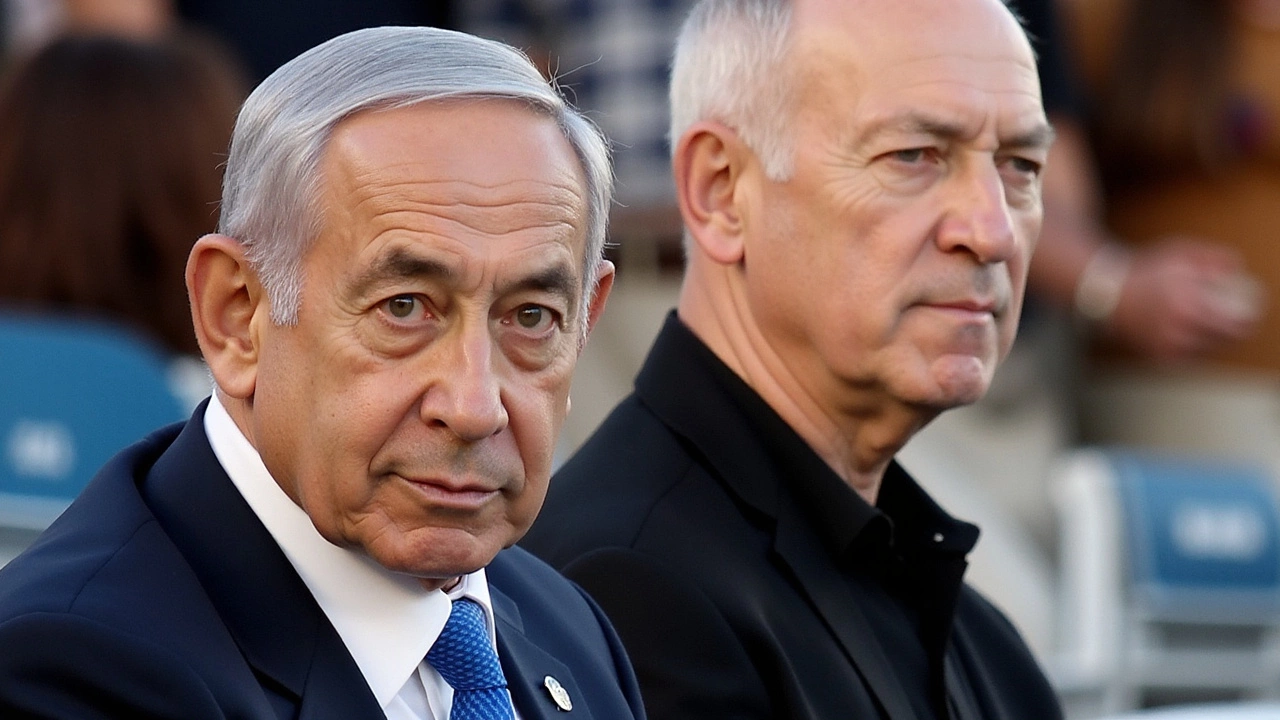ICC Unveils Arrest Warrants: A New Chapter in International Justice?
The issuance of arrest warrants by the International Criminal Court (ICC) for Israeli Prime Minister Benjamin Netanyahu and former Defense Minister Yoav Gallant marks an unprecedented moment in the global pursuit of justice. Accused of war crimes and crimes against humanity during Israel's military operations in Gaza, this development has sent ripples through international diplomatic waters, presenting both legal and moral quandaries for nations worldwide. These warrants, delivered on November 21, 2024, converge on accusations of life-threatening decisions made during the offensive, notably the alleged deliberate deprivation of necessities like food, and directing actions against civilians, thus breaching the Geneva Conventions.
Complex Implications for Global Diplomacy and Relations
This decision comes at a time when international human rights norms are under fierce scrutiny. The declarations by the ICC against Israeli leaders also extend to Mohammed Deif, the head of Hamas’s military wing, for similar allegations. These pivotal actions have reignited debates about accountability, with implications beyond the parties directly involved. The court’s decision has drawn starkly contrasting reactions, revealing cracks in diplomatic alliances and the enduring tensions from the region's conflicts.
The Palestinian Authority and Global Reactions
The Palestinian Authority (PA) has lauded this as a reclaimed victory for international law. It sees the ruling as a potential catalyst for reviving faith in an often-criticized legal system, one struggling to maintain its relevance amidst geopolitical pressures. The PA has urged swift action from United Nations member countries, stressing the necessity to uphold international law by enforcing these warrants and distancing from Netanyahu and Gallant. This development places a newfound responsibility on states worldwide, highlighting a demand for solidarity in holding leaders accountable.
Repercussions on Israel’s Diplomatic Ties
The ICC's actions have already begun shifting diplomatic terrain. Notably, Italy's assertion that it would arrest Netanyahu upon his entry encapsulates the complex diplomatic dynamics unfolding. Within NATO and the EU, there exists a spectrum of responses ranging from fervent support, typified by Amnesty International's endorsement of the court’s decision as historic, to outright condemnation from Israeli officials. Such reactions have strained Israel’s diplomatic relationships, testing alliances long sustained by shared strategic interests.
U.S. Involvement and Criticism
By extension, the United States has found itself in an uncomfortable spotlight. As arguably Israel’s most steadfast ally, the Biden administration’s perceived complicity has drawn intensive scrutiny. Critics argue that U.S. policies have enabled what's cast by many as a reckless disregard for humanitarian concerns in the region. The tension between longstanding diplomatic alliances with Israel and a commitment to human rights principles complicates the U.S.'s position on the matter.
Longstanding Impacts on the Quest for Justice
The ICC's decision stands as a climactic point in an ongoing saga of territorial and religious strife. Beyond the immediate legal implications for the individuals involved, this unprecedented move has the potential to alter the course of international law enforcement regarding war crimes. It reflects the growing intolerance towards impunity at an international stage, especially in regions marred by enduring violence and human rights violations.
Concluding Remarks on Broader Implications
These arrest warrants are not merely symbolic; they serve as a crucial step in addressing chronic injustices within the Israel-Palestine conflict. By targeting high-profile individuals, the ICC aims to reiterate the notion that actions, regardless of political stature, carry consequences under international law. With the support and scrutiny of the international community, these developments may finally address the ongoing violations inherent to the Israeli occupation, and the broader system of apartheid affecting the rights of millions.
In the coming years, the outcome of these arrest warrants will likely influence legal precedents, challenge international relationships, and push the boundaries of global justice systems. It demands an introspection among nations: to choose legality and accountability over politics, to prioritize human rights, and to honor the commitments made through international conventions. With the spotlight on enforcing these warrants, the international community faces a significant test of its resolve and the ability to implement the ideals it preaches.



